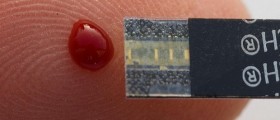
Whether or not diabetes is hereditary is a question that hasbaffled scientists since its occurrence and a solid proof of either has stillnot been found. In many cases it is evident that diabetes runs in the family,but whether or not genes really do play a role in passing it on is not reallyclear.
Diabetes in general
Diabetes, which is also known as sweet disease, can lead tomany health problems, such as different heart diseases, stroke and many others.This condition develops when the body is not able to produce glucose, or usethe glucose previously stored in the body, which causes the level of bloodsugar to increase.
There are two types of this condition, diabetes type 1 anddiabetes type 2. Type 1 is also called juvenile onset or insulin dependentdiabetes, and Type 2 is also known as adult onset or non-insulin dependentdiabetes. As their alternate names suggest, Type 1 affects children and youngadults and makes them dependent on insulin, while type 2 affects adults over 40if they are obese, lead an unhealthy lifestyle and perhaps have family historyof diabetes.
Is diabetes a hereditary disease?
If both parents have diabetes, their child is bound tosuffer from it too during some point in their life. The type of diabetesrelated gene that a parent passes on to the child is what determines whether achild will suffer from diabetes or not. One’s chances of suffering fromdiabetes are also increased if the number of diabetic patients in their familyis higher. Suffering from other types of genetic disorders, such as Down’ssyndrome, also increase one’s chances for suffering from diabetes too.
Gestational diabetes and whether it's hereditary
Gestational diabetes is a form of diabetes that only womenare affected by, as it develops during pregnancy. During this time of a woman’slife, the body produces all different kinds of hormones and a larger amount of insulinis necessary so as to keep the blood sugar levels in check. Sometimes thepancreas fails to supply the body with enough insulin which then leads togestational diabetes, whose symptoms disappear once the baby is born.
Theproblem with it is that it will develop again once the woman is once againpregnant and is also a sign that the woman might suffer from actual diabeteslater in life. Scientists are yet unsure whether this form of diabetes ishereditary since they are not really sure what exactly causes it.

















Your thoughts on this
Loading...